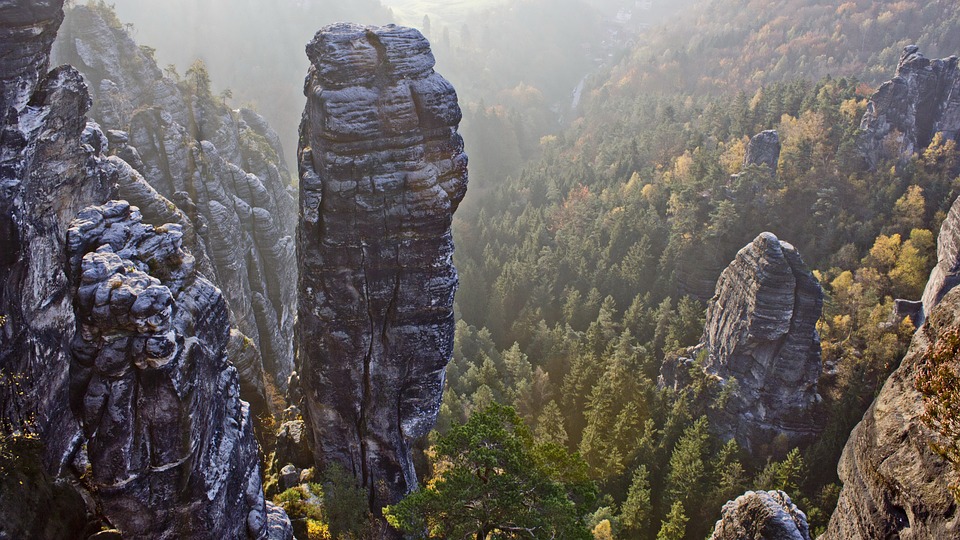Introduction
Rock ballads have always been a staple in the music industry, captivating audiences with their emotional lyrics, haunting melodies, and powerful instrumentals. Over the years, rock ballads have evolved and transformed, reflecting the changing styles and trends of the music world. From the 70s to present day, rock ballads have continued to captivate audiences and leave a lasting impact on listeners. Let’s take a look at the evolution of rock ballads over the decades.
The 70s: The Golden Age of Rock Ballads
The 70s were a golden age for rock ballads, with iconic bands like Led Zeppelin, Queen, and Pink Floyd releasing timeless classics that continue to be beloved by fans today. These bands pushed the boundaries of rock music, incorporating intricate instrumentals, poetic lyrics, and powerful vocal performances into their ballads.
One of the most iconic rock ballads of the 70s is Queen’s “Bohemian Rhapsody,” a six-minute epic that seamlessly blends rock, opera, and ballad elements. The song’s emotional lyrics and virtuosic vocal performances by Freddie Mercury make it a standout track in the rock ballad genre.
Other notable rock ballads from the 70s include Led Zeppelin’s “Stairway to Heaven,” Pink Floyd’s “Wish You Were Here,” and Fleetwood Mac’s “Landslide.” These songs showcased the diversity and range of rock ballads in the 70s, from the acoustic-driven introspection of “Landslide” to the epic storytelling of “Stairway to Heaven.”
The 80s: Power Ballads and MTV
The 80s saw the rise of power ballads, a subgenre of rock ballads that emphasized emotional lyrics, powerful vocals, and anthemic choruses. Bands like Bon Jovi, Def Leppard, and Guns N’ Roses helped popularize power ballads, reaching mainstream success with hits like “Livin’ on a Prayer,” “Love Bites,” and “Sweet Child o’ Mine.”
One of the defining characteristics of 80s rock ballads was their presence on MTV, the music television network that revolutionized the way music was consumed. Bands like Journey and Heart became household names with their visually striking music videos for songs like “Faithfully” and “Alone,” creating a new visual dimension to the already emotive genre of rock ballads.
The 80s also saw a resurgence of acoustic ballads, with artists like Bruce Springsteen and U2 incorporating stripped-down, intimate ballads into their repertoire. Songs like “I Still Haven’t Found What I’m Looking For” and “Tougher Than the Rest” showcased a softer, more introspective side of rock ballads in the 80s.
The 90s: Alternative and Grunge Influence
The 90s brought a new wave of rock ballads influenced by the rise of alternative and grunge music. Bands like Nirvana, Pearl Jam, and Soundgarden brought a raw, emotional edge to rock ballads, incorporating gritty vocals, distorted guitars, and angsty lyrics into their songs.
One of the defining rock ballads of the 90s is Nirvana’s “Something in the Way,” a haunting acoustic track that showcases Kurt Cobain’s raw, emotional vocals. The song’s minimalistic production and introspective lyrics set it apart from the bombastic power ballads of the 80s, reflecting the changing musical landscape of the 90s.
Other notable rock ballads from the 90s include Pearl Jam’s “Black,” Smashing Pumpkins’ “Disarm,” and Oasis’ “Wonderwall.” These songs showcased the diversity and experimentation of rock ballads in the 90s, from the grunge-infused angst of “Black” to the Britpop sensibilities of “Wonderwall.”
The 2000s: Emo and Post-Grunge Influence
The 2000s saw a resurgence of emo and post-grunge music, influencing a new wave of rock ballads that incorporated introspective lyrics, melodic hooks, and emotional vocals. Bands like My Chemical Romance, Evanescence, and Nickelback found mainstream success with their emotionally charged ballads, reaching a new generation of listeners.
One of the defining rock ballads of the 2000s is Evanescence’s “My Immortal,” a haunting piano-driven track that showcases Amy Lee’s powerful vocals and emotional lyrics. The song’s melancholic tone and introspective themes resonated with audiences, solidifying its place as a modern rock ballad classic.
Other notable rock ballads from the 2000s include My Chemical Romance’s “Welcome to the Black Parade,” Nickelback’s “Far Away,” and Three Days Grace’s “Never Too Late.” These songs showcased the diverse and evolving nature of rock ballads in the 2000s, from the soaring anthems of “Welcome to the Black Parade” to the intimate vulnerability of “Far Away.”
Present Day: Diversity and Innovation
In present day, rock ballads continue to evolve and thrive, with artists from all genres incorporating elements of the genre into their music. From pop-punk bands like Paramore to indie artists like Phoebe Bridgers, rock ballads are being reimagined and reinvented for a new generation of listeners.
One of the defining characteristics of present-day rock ballads is their diversity and innovation, with artists pushing the boundaries of the genre and experimenting with new styles and sounds. Songs like Taylor Swift’s “All Too Well” and Hozier’s “Cherry Wine” showcase the range and adaptability of rock ballads in the modern era.
As technology continues to shape the music industry, rock ballads have found a new platform in streaming services and social media, allowing artists to reach a global audience and connect with fans in new and exciting ways. The future of rock ballads is bright, with the genre continuing to evolve and inspire listeners for years to come.
